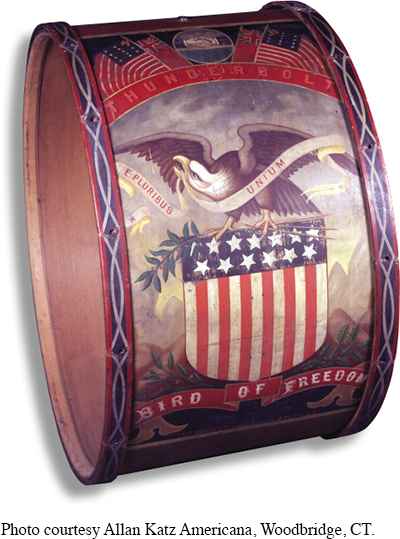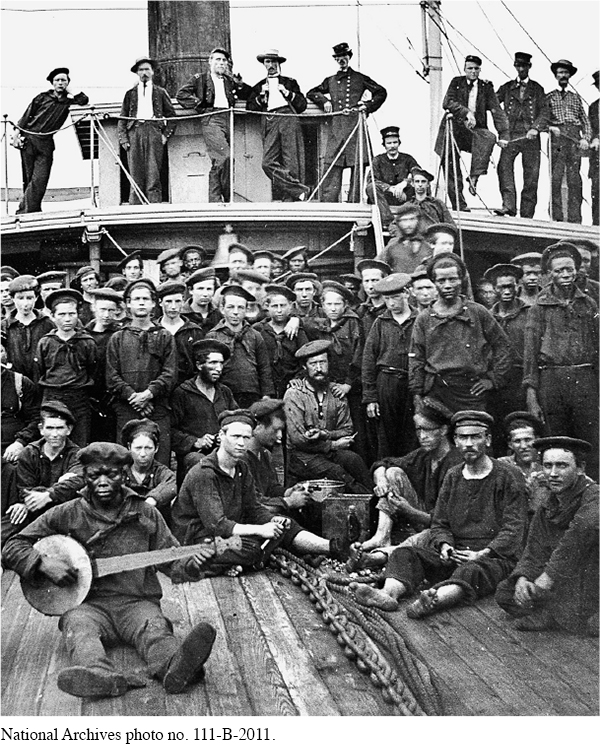The American Promise: Printed Page 405
The American Promise, Value Edition: Printed Page 370
The American Promise: A Concise History: Printed Page 422
Introduction to Chapter 15
The American Promise: Printed Page 405
The American Promise, Value Edition: Printed Page 370
The American Promise: A Concise History: Printed Page 422
Page 40515
The Crucible of War
1861–

CONTENT LEARNING OBJECTIVES
After reading and studying this chapter, you should be able to:
Describe what each side was fighting for and why they each believed they would win.
Compare the Union’s military results in the East and West in 1861 and 1862, and explain the significance of the Union blockade.
Explain how the Civil War was transformed into a war to end slavery.
Examine how the war affected Union and Confederate societies and economies, and how African Americans and women took part in the war effort.
Describe how General Grant accomplished his plan for Union victory from 1863 to 1865 and why the Confederacy collapsed.
ON THE NIGHT OF SEPTEMBER 21, 1862, IN WILMINGTON, North Carolina, twenty-
William Gould could read and write, and he began keeping a diary. In some ways, Gould’s naval experience looked like that of a white sailor. He found duty on a ship in the blockading squadron both boring and exhilarating, as days of tedious work were occasionally interrupted by a moment of “daring exploit.”
But Gould’s Civil War experience was shaped by his race. Like most black men in the Union military, he saw service as an opportunity to fight slavery. Gould linked union and freedom, “the holiest of all causes.” Gould witnessed a number of ugly racial incidents, however. When a black regiment came aboard, “they were treated verry rough by the crew,” he said. The white sailors “refused to let them eat off the mess pans and called them all kinds of names[;] . . . in all they was treated shamefully.”
The American Promise: Printed Page 405
The American Promise, Value Edition: Printed Page 370
The American Promise: A Concise History: Printed Page 422
Page 406Still, Gould was proud of his service in the navy and monitored the progress of racial equality during the war. In March 1865, he celebrated the “passage of an amendment of the Con[sti]tution prohibiting slavery througho[ut] the United States.” And a month later, he thrilled to the “Glad Tidings that the Stars and Stripe[s] had been planted over the Capital of the D—
Early in the war, black abolitionist Frederick Douglass challenged the friends of freedom to “be up and doing;—now is your time.” But for the first eighteen months of the war, federal soldiers officially fought only to uphold the Constitution and preserve the nation. Only with the Emancipation Proclamation in 1863 did the northern war effort take on a dual purpose: to save the Union and to free the slaves.
As the world’s first modern war, the Civil War transformed America. It mobilized the entire populations of North and South, harnessed the productive capacities of both economies, and produced battles that fielded 200,000 soldiers and created casualties in the tens of thousands. The carnage lasted four years and cost the nation approximately 750,000 lives. The war helped mold the modern American nation-
Recalling the Civil War years, Frederick Douglass said, “It is something to couple one’s name with great occasions.” It was something—

CHRONOLOGY
| 1861 |
|
| 1862 |
|
| 1863 |
|
| 1864 |
|
| 1865 |
|